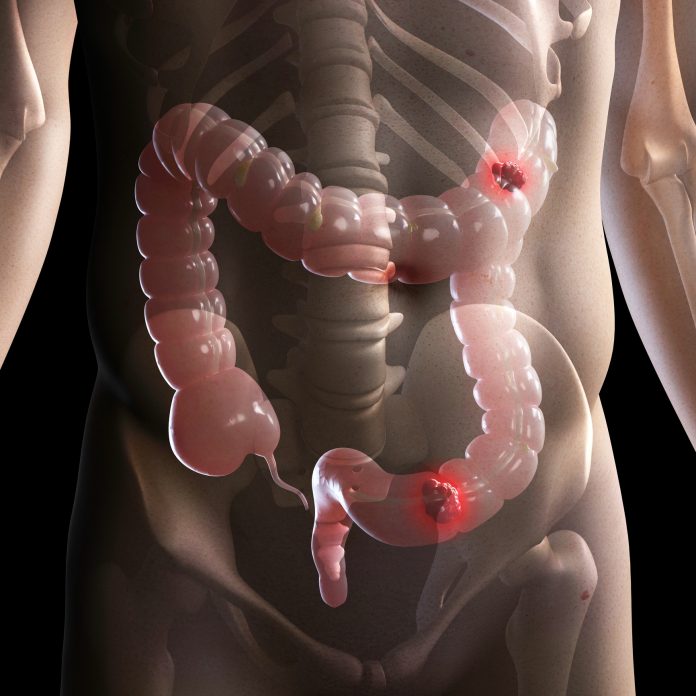
Dominant T cells in the small intestine help prevent cancer, while a type more common in the colon suppresses the body’s immune response to tumors, according to a new study. The different microbiome composition of these organs seems to be behind this effect. These findings could lead to new ways of treating and diagnosing colon cancer.
“It is a significant finding that we’ve been able to attribute the microbiome to the development of colonic T-IELs [intraepithelial T lymphocytes], as this was previously unknown,” principal investigator Lisa Mielke, PhD, tells Inside Precision Medicine. Mielke is Head of the Mucosal Immunity and Cancer Laboratory at the Olivia Newton-John Cancer Research Institute (ONJCRI).
She adds that, “previous research has only looked at small intestine T-IELs and assumed that colonic T-IELs were the same, but our research shows that they are in fact distinctly different.”
The new study appeared October 6 in Science Immunology. The co-lead author is Marina Yakou, PhD candidate at the ONJCRI.
WHO estimates that colorectal cancer is the third most common cancer worldwide, and the second leading cause of cancer-related deaths. It is also increasingly becoming a disease of the young.
“We have discovered that an important group of immune cells in the large bowel—gamma delta T cells [γδ]—are crucial to preventing bowel cancer. Gamma delta T cells act as our frontline defenders in the bowel,” says Mielke.
T cells play a critical role in maintaining the gastrointestinal epithelium. In this study, the researchers found that intraepithelial lymphocytes (IELs) for defense against cancer were highly expressed by T-IELs in the small intestine. In contrast, abundance of colonic T-IELs was dependent on the microbiome and displayed higher expression of TCF-1/TCF7 and a reduced cytotoxic profile
“When we analyzed bowel cancer patient samples, we found that when more gamma delta T cells were present in the tumors, these patients were reported to have better outcomes and improved survival.”
The large bowel microbiome comprises trillions of bacteria, viruses and fungi. Links between the microbiome and cancers have been steadily increasing.
“We discovered that the amount, and diversity of, the microbiome in the large bowel resulted in a higher concentration of a molecule called TCF-1 on Gamma delta T cells compared to other areas of the gut. This molecule (TCF-1) suppresses our natural immune response, the gamma delta T cells, from fighting off bowel cancer,” said Yakou.
“When we deleted TCF-1 in gamma delta T cells using pre-clinical models, this fundamentally changed the behavior of these immune cells and we saw a remarkable reduction in the size of bowel cancer tumors,” she added. This helps pave, “a new roadmap for developing targeted combination immunotherapies to more effectively treat bowel cancer patients.”
This research also adds to understanding of how the microbiome and immune cells in the bowel interact, which could lead to the development of new strategies to lower bowel cancer risk and better screen for this disease.
“The next steps for our research will be to further investigate the TCF-1 pathway in colon gamma delta T cells for development of new therapeutics or response to existing immunotherapies. Our close links with the hospital provide an advantage to translate these next steps into patient trials,” Mielke told Inside Precision Medicine.













